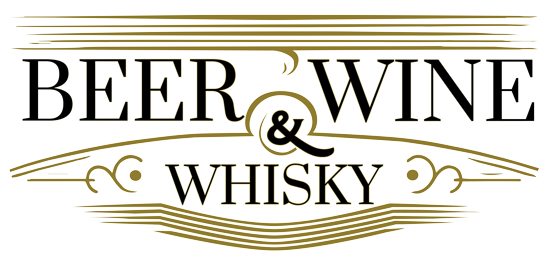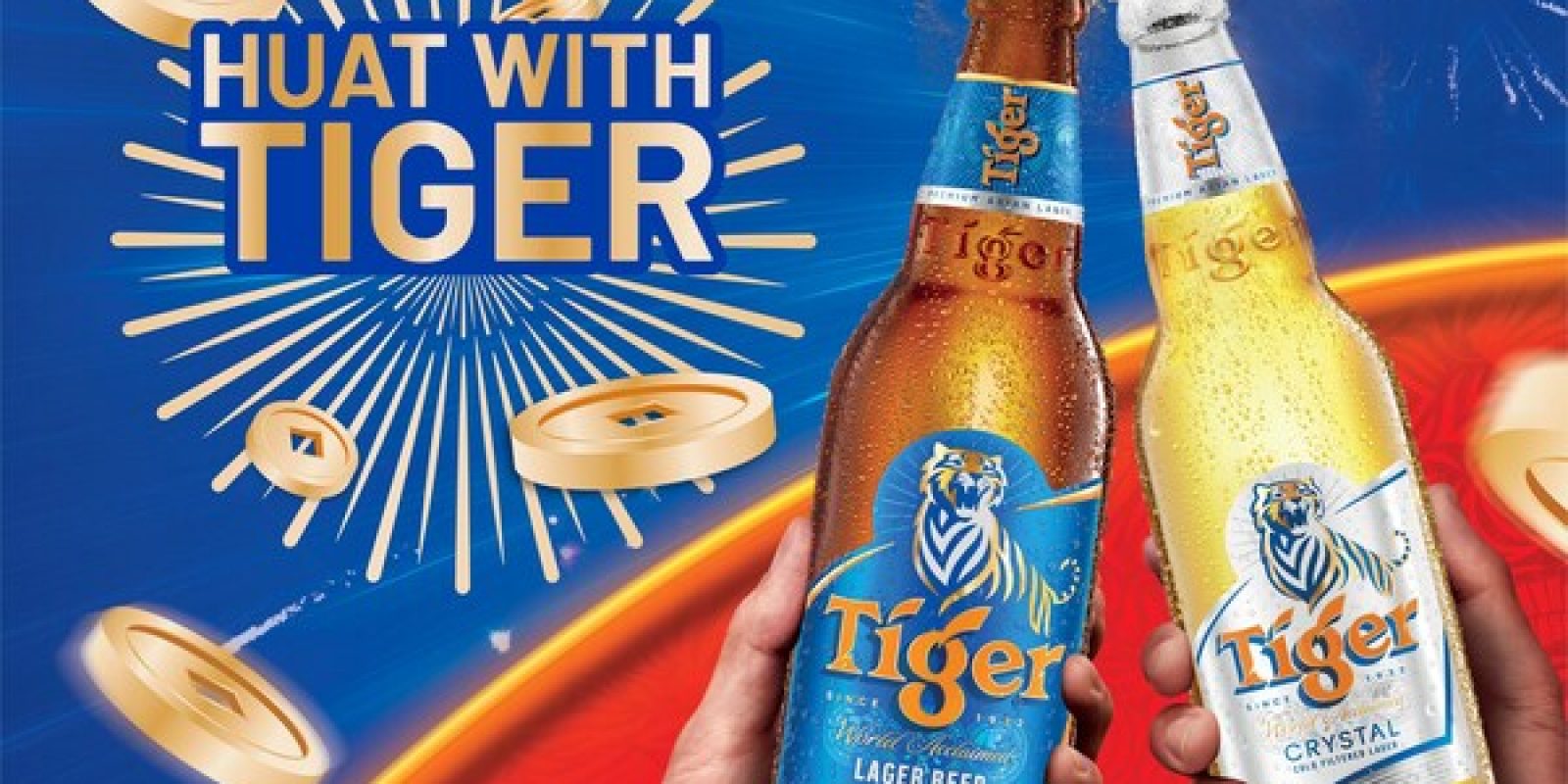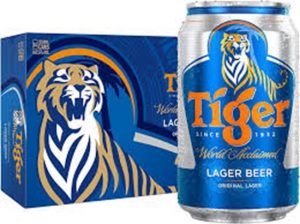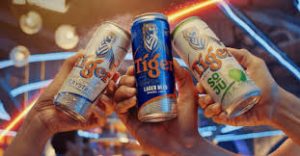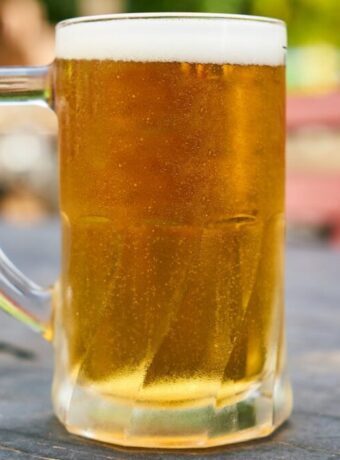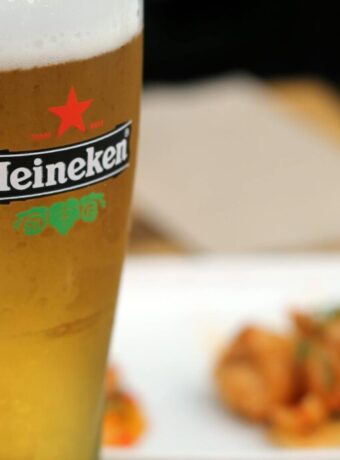One of the most popular beers is Tiger Beer, known for its sponsorships of sports teams, especially football. However, few would imagine the humble beginning of this giant. It’s worthwhile exploring just how it happened and how they grew to international fame.
Tiger Beer, a brand that resonates with both heritage and innovation, carries with it a rich tapestry woven through decades of brewing excellence and social involvement. Its journey from a modest local beer to an internationally celebrated brand mirrors the dynamic evolution of Southeast Asia itself. This article traces Tiger Beer’s remarkable history, spotlights its visionary founders. More so, it delves into its rise to global recognition and explores its role in the social sphere through sponsorships and competitions.
Origins and Founders
Tiger Beer’s tale commences in the vibrant city of Singapore, then part of colonial Malaya. In 1932, amidst the uncertainty of global economic depression and the lively bustle of the region, Tiger Beer was born. Its creators—Fraser and Neave, Limited (F&N), a company with established roots in Asia—joined forces with Heineken, one of Europe’s most prominent brewers, to form Malayan Breweries Limited. This joint venture aimed to introduce a locally brewed beer that would reflect the cosmopolitan spirit of Singapore, embracing both Eastern vibrancy and Western brewing craftsmanship.
Fraser and Neave, established in 1883 as a drinks and publishing company, had already cultivated a reputation for quality and innovation in the region. Heineken, founded by Gerard Adriaan Heineken in Amsterdam in 1864, brought world-class brewing expertise and a global outlook. Their partnership proved both timely and visionary, culminating in the creation of Tiger Beer—the first locally brewed beer in Singapore.
Guided by the visionaries of F&N and Heineken, Tiger Beer was crafted to suit the tropical climate and the evolving tastes of Southeast Asians. Brewed using high-quality barley, hops, and yeast, Tiger Beer quickly distinguished itself for its crisp, refreshing profile and distinctive character.
Growth and International Recognition
From its earliest days, Tiger Beer set itself apart by striving for quality, consistency, and bold branding. The iconic tiger symbol, potent and elegant, spoke to both regional pride and universal appeal. Within a decade, Tiger Beer had become a staple in Singapore and Malaya’s bars and restaurants.
The brand’s expansion beyond Southeast Asia was catalyzed by several strategic moves. In the post-war years, as Singapore grew into a hub of commerce and culture, Tiger Beer began exporting to nearby countries and, before long, to more distant shores. The beer’s international rollout accelerated in the 1960s and 1970s, when it began appearing in markets across Asia, Europe, and Australia.
Tiger Beer’s international recognition was anchored not merely by its global availability but through its accolades. In 1939, only seven years after its birth, Tiger Beer won its first international award—the gold medal at the prestigious London Bottled Beer Competition. Over the decades, Tiger Beer has continued to win numerous awards for taste and quality, including the Monde Selection Gold Medal and accolades at the World Beer Cup.
As the brand grew, so did its association with cosmopolitan lifestyles and youthful energy. Tiger Beer’s advertisements reflected global trends, and its iconic blue-and-orange branding was instantly recognizable. Its reputation as a premium Asian lager became firmly established, and by the early 21st century, Tiger Beer was available in more than 60 countries worldwide.
Involvement in the Social Space: Sponsorships and Competitions
Tiger Beer’s influence extends far beyond the glass. The brand has actively involved itself in the social and cultural spheres, leveraging sponsorships and competitions to build community, foster creativity, and support emerging talent.
Sports Sponsorships
Sport has long served as a bridge between cultures, and Tiger Beer has embraced this avenue wholeheartedly. Throughout its history, Tiger Beer has sponsored numerous sporting events and teams, particularly in football, where passion runs deep across Asia.
One of its most prominent partnerships was with the English Premier League club Everton FC, which Tiger Beer sponsored in the early 2000s as part of its international outreach. Locally, the brand has supported Singapore’s own football scene, sponsoring clubs and tournaments to nurture homegrown talent.
Beyond football, Tiger Beer has been a frequent sponsor of rugby tournaments, martial arts competitions, and motorsport events, underscoring its commitment to the spirit of athleticism and camaraderie.
Cultural and Creative Engagement
Tiger Beer’s involvement in the arts and creative industries has further distinguished the brand as a patron of innovation and expression. In 2005, Tiger Beer launched the “Tiger Translate” initiative—a global art and music platform that connected artists from East and West, facilitating collaborations, exhibitions, and live events. This program not only spotlighted emerging talent but also celebrated the fusion of cultures.
Tiger Translate events have taken place in cities such as London, Beijing, Bangkok, and Berlin, featuring street artists, graphic designers, musicians, and performers. The campaign’s success in bridging artistic worlds has been widely documented and admired.
Hosting Competitions
Tiger Beer’s commitment to community is perhaps best exemplified by the diverse competitions it sponsors and hosts. These events, often aimed at celebrating creativity and skill, have become integral to its brand identity.
- Tiger Street Football: This tournament, launched in the early 2010s, brings together football enthusiasts from around the world. Unlike traditional football, Tiger Street Football is played on compact urban pitches with teams displaying flair and improvisation. The event has been hosted in cities like Singapore, Ho Chi Minh City, and Guangzhou, drawing both professional players and street football legends.
- Tiger Remix: A music competition that encourages aspiring musicians, DJs, and producers to remix classic tracks or create original works inspired by Tiger Beer’s spirit. Winners are given opportunities to perform at major festivals and marketing events.
- Tiger Art Jam: An art contest organized by Tiger Beer that invites young artists to showcase their works—whether painting, sculpture, or digital media. Some winning pieces have been featured in international exhibitions and used in Tiger Beer’s own branding.
- Tiger Street Food Festival: Tiger Beer actively sponsors annual street food festivals in several cities, celebrating local culinary traditions. These events often feature cooking competitions, chef showcases, and food stalls paired with Tiger Beer, reinforcing the brand’s connection to conviviality and culture.
The Enduring Legacy and Future of Tiger Beer
Tiger Beer has become much more than a beverage—it is a symbol of resilience, creativity, and connection. From its origins in 1932 Singapore to its global presence today, Tiger Beer’s journey is marked by entrepreneurial daring and an unceasing embrace of change.
Its founders, Fraser and Neave and Heineken, laid the groundwork for decades of innovation and success. Through unwavering quality, bold branding, and a readiness to engage the world, Tiger Beer gained international esteem and cultivated a loyal following across continents.
Today, Tiger Beer continues to play an active role in the social fabric, sponsoring teams, supporting competitions, and providing platforms for artistic and athletic expression. Its story is ongoing—each campaign, event, and bottle a testament to the idea that beer can bring people together, inspire creativity, and celebrate diversity.
From the bustling streets of Singapore to the global stage, Tiger Beer’s roar echoes on, inviting the world to ‘Uncage Your Tiger’—to embrace boldness, celebrate community, and look forward to the next chapter in its storied journey.
